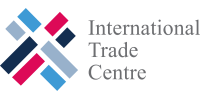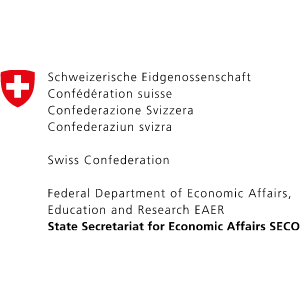

BioTrade Knowledge Sharing & Self-Assessment Tool
Enabling BioTrade value chain actors to connect, access information and benchmark their sustainability performance
The BioTrade Knowledge Sharing and Self-Assessment Tool brings together information related to biodiversity-based initiatives, allowing users to connect with different value chain actors and benchmark their sustainability practices against the BioTrade Principles and Criteria developed by the UN Trade and Development (UNCTAD). The goal of this tool is to provide a preliminary diagnostic report to see where an organization or value chain stands against the BioTrade guidelines.
Benefits for companies, cooperatives and producers:
- Provides a first preliminary step for companies to start your journey towards adopting the BioTrade Principles and Criteria into your organization or value chain
- Identify potential organizations which could provide support services to your company or organization
- Search for training materials and relevant publications related to the implementation of BioTrade
- Gain visibility on the Network of BioTrade companies and institutions
Benefits for institutions and civil society organizations ::
- Expand your network of companies and partners
- Promote your unique expertise on BioTrade and gain greater exposure for your published materials, projects and services
- Use the BioTrade Self-Assessment Tool to help your clients and beneficiaries understand the components necessary to become a BioTrade company
BioTrade encompasses all activities related to collecting, producing, transforming and commercializing goods and services derived from biodiversity and is traded in a way that respects people and nature.
BioTrade is defined by the BioTrade Principles and Criteria, which is a set of guidelines that support economically, socially and environmentally sustainable practices. Today they are implemented and fostered by governments, businesses, and organizations in over 80 countries.
The BioTrade Principles and Criteria were developed by UN Trade and Development’s BioTrade Initiative, and are in line with several international agreements, principles and guidelines [1]. They also reflect the experiences of BioTrade partners, companies, sourcing communities and other practitioners in implementing them in a growing number of value chains and sectors and contexts, including terrestrial, marine and coastal ecosystems.
[1] The 2030 Agenda for Sustainable Development and its SDGs, the United Nations Mandates (UNCTAD 14), the Convention on Biological Diversity and its Nagoya Protocol on Access to Genetic Resources and the Fair and Equitable Sharing of Benefits, the Convention on International Trade in Endangered Species of Wild Fauna and Flora (CITES), the Paris Agreement to the United Nations Framework Convention on Climate Change, the United Nations Convention to Combat Desertification (UNCCD), the Ramsar Convention on Wetlands, the United Nations Convention on the Law of the Sea (UNCLOS), the United Nations Fish Stocks Agreement (UNFSA), the International Labour Organization (ILO) and human rights.
The BioTrade Knowledge Sharing and Self-Assessment Tool are developed by ITC and the UN Trade and Development BioTrade Initiative under the framework of the “ Global BioTrade Programme Linking trade, biodiversity and sustainable development ” , financed by the Swiss State Secretariat for Economic Affairs SECO.
UN Trade and Development launched the BioTrade Initiative in 1996 and since then, it was been closely collaborating with the following partners and stakeholders to implement BioTrade around the world:
- ABS Capacity Development Initiative
- Ministry of Environment of Ecuador
- Biodiversity Conservation Agency (BCA)
- Ministry of Environment of Peru
- BioEmprende Ecuador
- Ministry of Environment and Sustainable Development of Colombia
- Development bank of Latin America (CAF)
- Ministry of Science and Technology of Lao People’s Democratic Republic
- Convention on Biological Diversity (CBD)
- PhytoTrade Africa
- Convention on International Trade in Endangered Species of Wild Fauna and Flora (CITES)
- Swiss State Secretariat for Economic Affairs SECO
- Forum for Law, Environment, Development and Governance (FLEDGE)
- Swiss Import Promotion Programme (SIPPO)
- International Trade Centre (ITC)
- Union for Ethical Biotrade (UEBT)
- HELVETAS Swiss Intercooperation
The Assessment Tool can be used for free by companies, producers and cooperatives from various biodiversity-based value chains to guide their efforts towards a greener and more inclusive business.
What can you achieve by using the BioTrade Self-Assessment Tool?
- Benchmark your sustainability practices against the BioTrade Principles and Criteria developed by the UN Trade and Development (UNCTAD) in a transparent, neutral and independent manner.
- Identify areas within your company or value chain that can be improved to become more BioTrade compliant.
- Compare side-by-side the BioTrade Principles and Criteria against relevant sustainability standards covering biodiversity-conservation available at Standards Map.
- Download two-pager.
Supported by:
